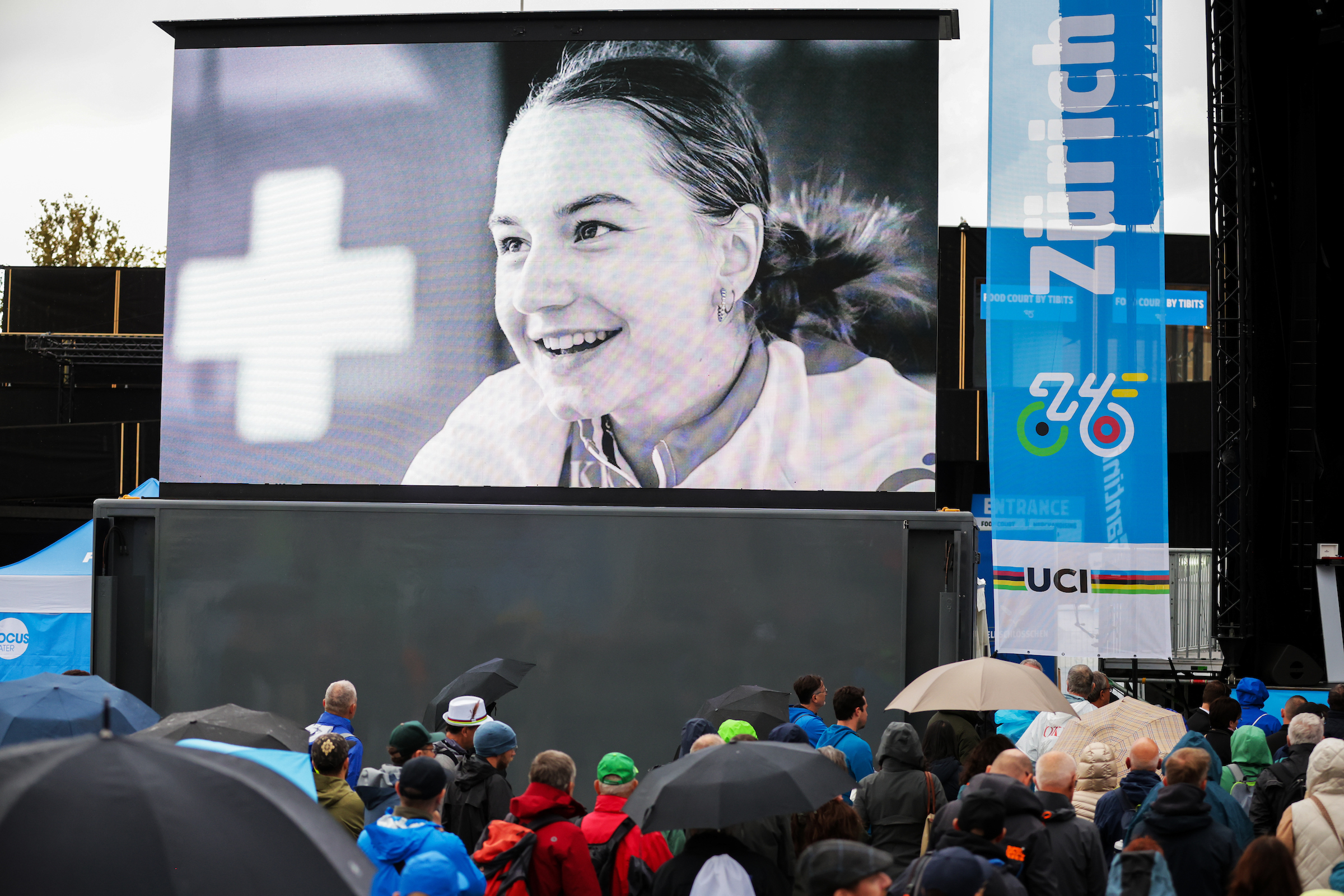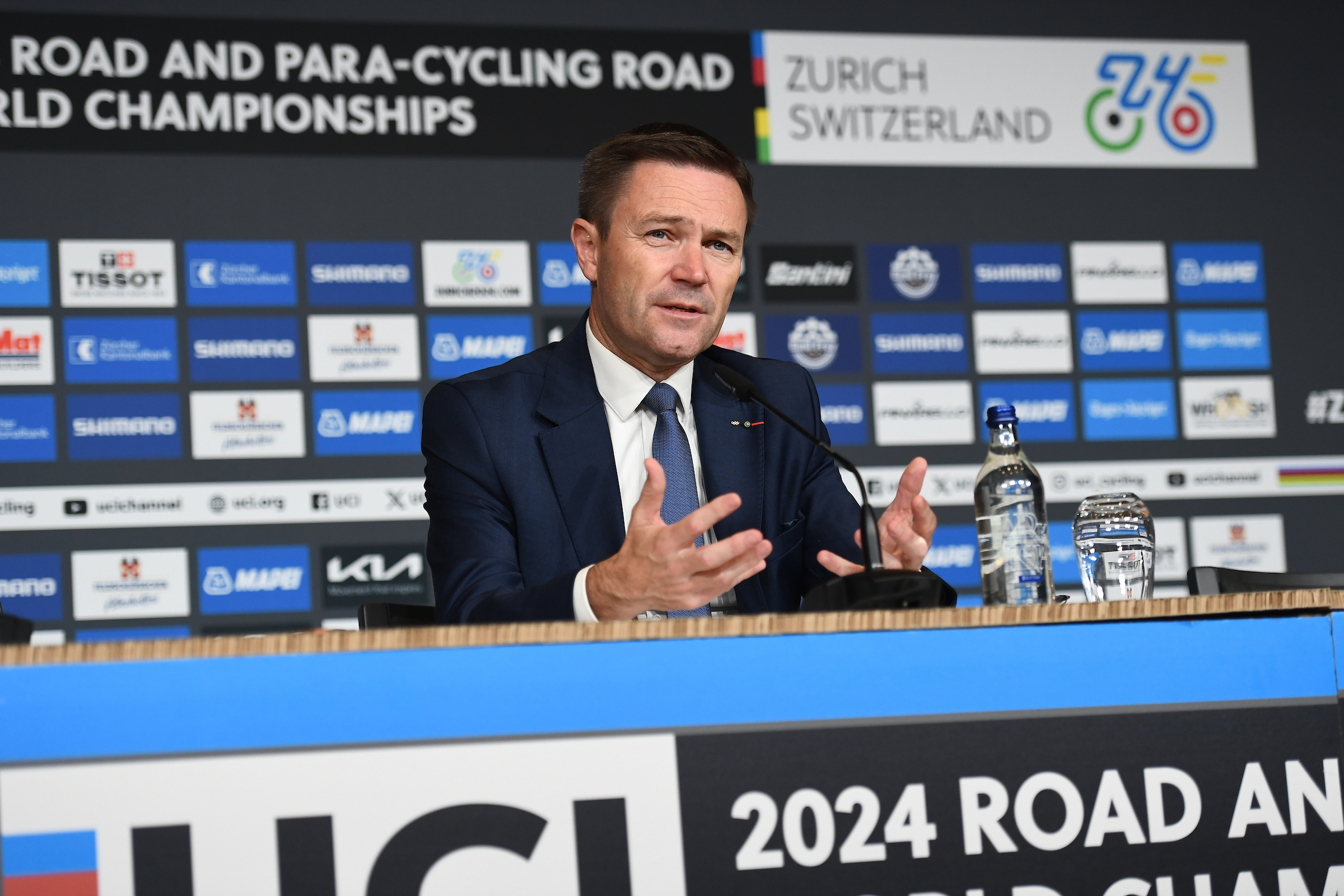
Swiss Cycling has been through two tragedies in the last year. First the death of Gino Mäder at the Tour de Suisse, the biggest WorldTour race in Switzerland, and now the death of Muriel Furrer, at its home World Championships. "You don’t ride a bike to die", David Lappartient, president of the UCI, said.
The 18-year-old crashed just kilometres away from her hometown of Egg, just to the south of Zürich, during the women's junior road race on Thursday. The event has understandably cast a pall over the World Championships, with the mood sombre, but the decision was taken to keep the races going, but with less celebration.
Little is known about the incident, with live questions about the cause of Furrer's crash, the time of it, and also how long before she was taken to hospital by air ambulance. There are also queries over the safety of the race course, the same race course that will be used by the elite men's and women's road races on Saturday and Sunday, along with some of the para-cycling events. Additional safety measures have been taken on the course, it was confirmed on Friday.
Speaking on Saturday morning, at his annual press conference, the president of cycling's governing body, Lappartient, was unable to provide much more information. A police investigation has been opened, who are working with the local public prosecutor in Zürich.
"We don’t know exactly what happened, that’s the job of the police, they are working on it, to figure out the conditions of how the accident happened," Lappartient said. "I don’t want to make any conclusions on this. We can have different scenarios and I don’t want the radios, or this accident to be used in that discussion. The crash happened, we don’t know how, that’s the job of the police, and it’s too early to have any conclusion to say it would have been possible to find her earlier with a radio or not. We will establish the conditions with the police."
Asked about the timing of the crash, the Frenchman responded: "11 or 12, that is a different thing, and that is the job of the police to establish this. There are ongoing investigations from the police, I can’t answer this. I was informed as soon as we had the information, through my director general. We were in different meetings at the UCI, and I followed the situation.
"We don’t know exactly all the circumstances of the accident," he continued. "It [the investigation] may take some time, they [the police] will go at their speed, they will deal with their procedures. We will respect this. When we have this kind of information, we have to also evaluate with the family, with the national federation, which information we will provide and whether we have to provide that or not. We have a crisis communication system with the UCI and also with the authorities. I will not here say that it was potentially like this, let’s see the conclusions that will happen."

With this the latest tragedy to befall the world of cycling, understandably some are asking what could be done to make racing safer. The accident and its aftermath happened on the Zürich city circuit, a 27km-long loop from the centre of the Swiss city, not on a route in the middle of nowhere.
Asked what he would say to the parents of a Swiss junior cyclist who would afraid to allow their child to race, the UCI's president said: "It’s a good question, because we are not in a football stadium, something closed where the risk is really limited. We are on open roads. Most accidents are not in competition, it’s in training. Some riders died or were seriously injured during training sessions.
"Races are something we see because it’s on live TV and it’s with fans, so the impact is really huge, and probably more important than training sessions."
He spoke about the problems all cyclists face in traffic, and also the challenge posed by more obstacles on the road. The UCI established the SafeR scheme to work towards a less dangerous sport too, Lappartient added.
"Safety is not so easy, and this is why teams, organisers, and the UCI work together on this, and not to throw potatoes from one side to the other," he said. "Our common goal is to ensure safer cycling, because otherwise parents will be afraid to send their kids to practise cycling."
"The first condition is to provide a safe environment for the racing," Lappartient continued. "But we know that 50% of crashes happen because of bad behaviour. There is not one reason, and it’s not so easy. Those of you who are cyclists, in the bunch a touch of wheels happen and it can be a drama, it’s not always the fault of the organiser, not the fault of the UCI. It’s not an easy topic, but we are working together, we have improved the system, it’s getting better. With the multiplication of obstacles, it’s more and more difficult to organise bike races."
As for the continuing Worlds, Lappartient said that cancelling the event was "not the one on the table".
"We believe at the UCI that cancelling was not the right way to keep Muriel’s memory going," he said. "I had a lot of discussions yesterday with Swiss cycling. There were different options for them, in order to celebrate the memory of Muriel, and collectively, we thought stopping the race was not the best way. It can’t be the same, we cancelled the Gala dinner, the music and festival we also cancelled a lot of things. We want it to be at the minimum, to have the sport to continue, to celebrate the cyclists themselves."







